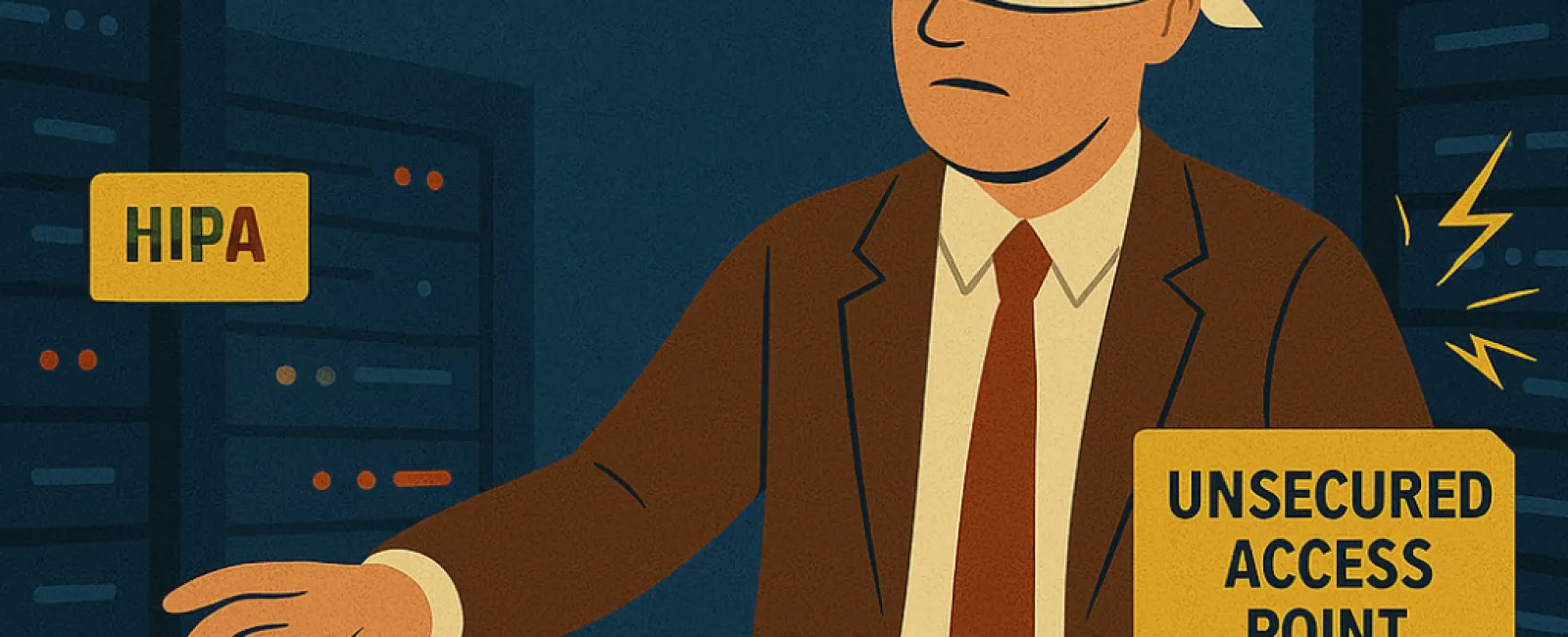July 14, 2025
Many small business owners mistakenly believe that regulatory compliance only matters for big corporations. But in 2025, that misconception is dangerously outdated. With stricter regulations sweeping across industries, small businesses are now a primary focus for compliance watchdogs.
Why Compliance Is Crucial Now More Than Ever
Agencies such as the Department of Health and Human Services (HHS), Payment Card Industry Security Standards Council (PCI SSC), and the Federal Trade Commission (FTC) have sharpened their focus on safeguarding data and protecting consumer privacy. Ignoring compliance isn't just a legal risk — it's a threat that can devastate your finances and reputation, potentially putting your small business at risk of failure.
Essential Regulations Small Businesses Must Follow
1. HIPAA (Health Insurance Portability and Accountability Act)
If your company deals with protected health information (PHI), HIPAA rules apply. Recent updates stress the following:
●
Mandatory encryption for all electronic PHI.
●
Routine risk assessments to uncover vulnerabilities.
●
Regular employee training on privacy and security policies.
●
Incident response plans to act swiftly on data breaches.
Failing to follow these rules can lead to significant fines—like the $1.5 million penalty the HHS levied in 2024 on a small healthcare provider for lax data security.
2. PCI DSS (Payment Card Industry Data Security Standard)
Any business that processes credit card payments must meet PCI DSS standards. Key requirements include:
●
Secure storage of customer card data.
●
Continuous network monitoring and penetration testing.
●
Robust firewalls and encryption protocols.
●
Strict access controls to limit data exposure.
Ignoring PCI DSS rules can lead to penalties ranging from $5,000 up to $100,000 monthly, depending on violation severity.
3. FTC Safeguards Rule
Companies collecting consumer financial data must:
●
Create a written information security plan.
●
Assign a qualified security officer to oversee protections.
●
Regularly evaluate risks.
●
Use multifactor authentication (MFA) to enhance security.
Noncompliance could spark fines up to $100,000 per incident for companies and $10,000 for individuals. Not a risk worth taking!
Real Consequences When Compliance Fails
Consider a small medical practice that fell victim to a ransomware attack due to outdated security. They not only faced a $250,000 fine from the HHS but also lost patients' trust, drastically reducing their client base. Taking control of your data security isn't optional — it's essential.
Proactive Steps to Achieve Compliance
- Perform In-Depth Risk Assessments: Continuously review your systems to identify and fix security gaps.
- Deploy Strong Security Protocols: Utilize encryption, firewalls, and MFA to safeguard sensitive information.
- Educate Your Team: Ensure all employees understand compliance responsibilities and best practices.
- Create an Incident Response Plan: Prepare a clear, actionable plan for potential data breaches.
- Consult Compliance Specialists: Work with experts to navigate complex regulations and safeguard your business.
Act Now Before It's Too Late
Compliance goes beyond legal requirements—it's the foundation of your business's credibility and continued success. Overlooking compliance can lead to costly fines and irreversible damage to your brand.
Ready For A Compliance Checkup?
We provide a FREE 15-Minute Discovery Call to pinpoint vulnerabilities and help your business meet every regulatory standard. Don't let compliance gaps threaten your growth.
Click here or call us at 702-896-7207 to schedule your FREE 15-Minute Discovery Call today.



